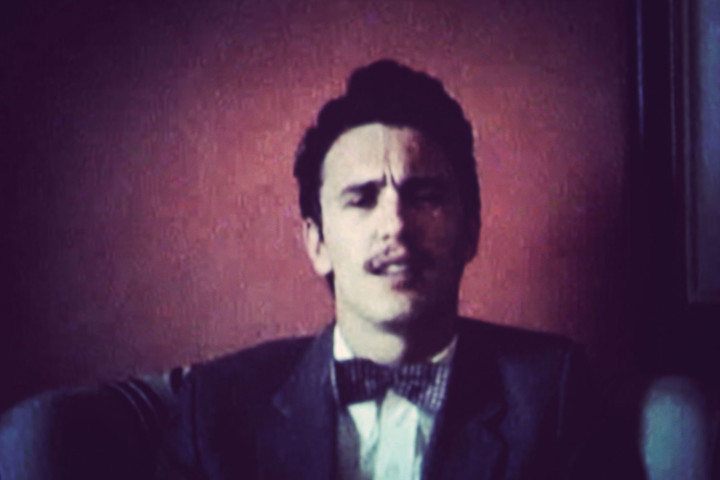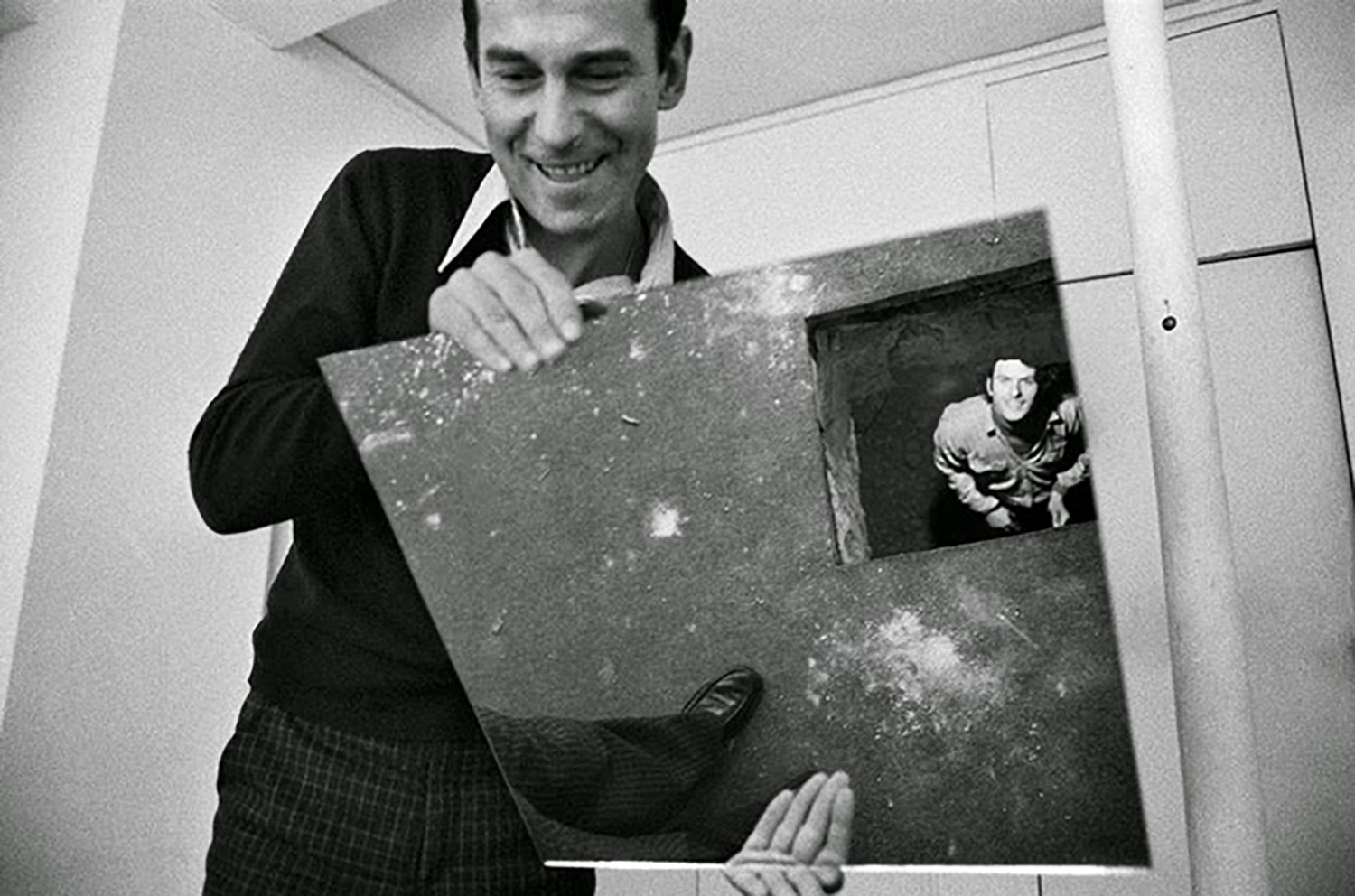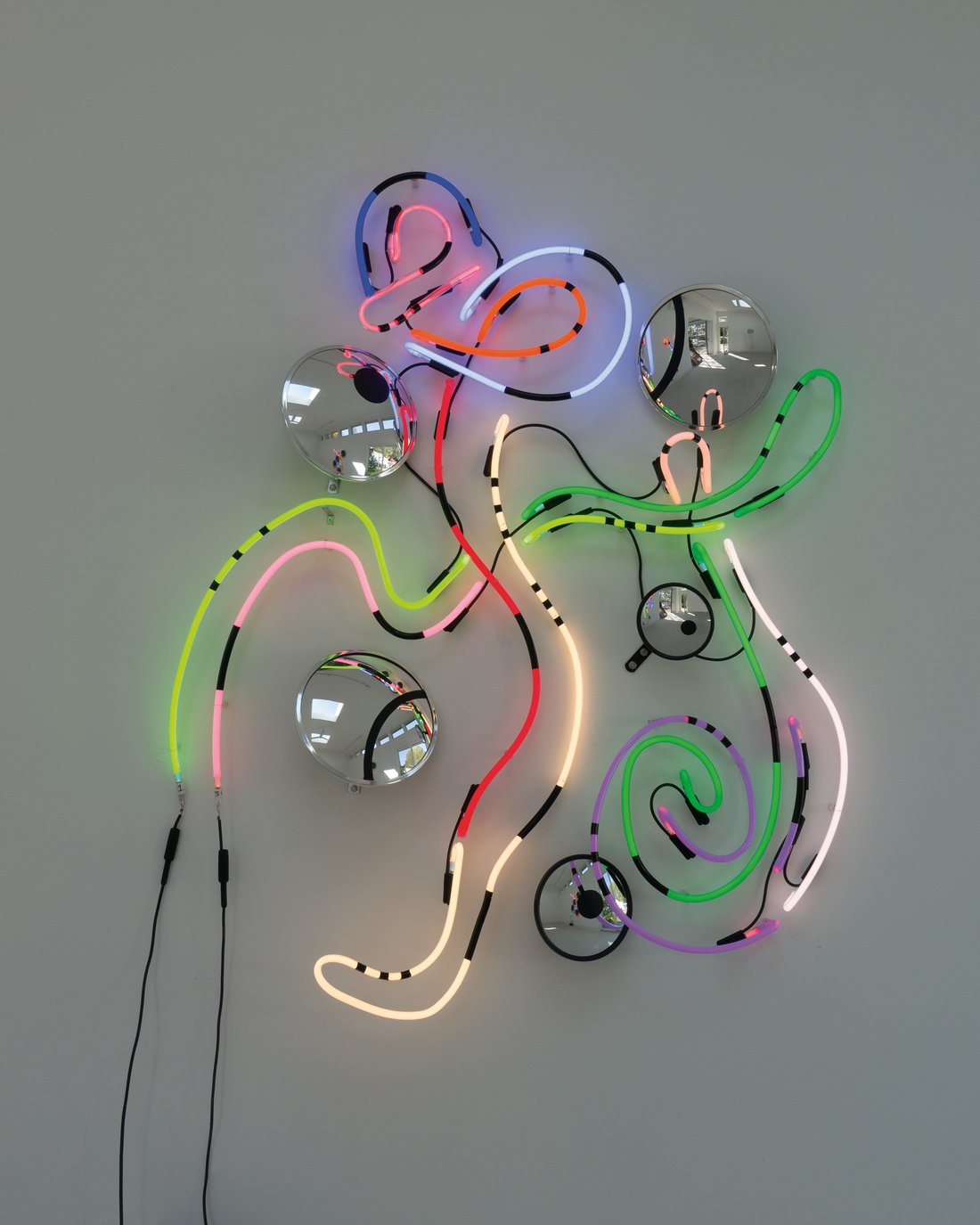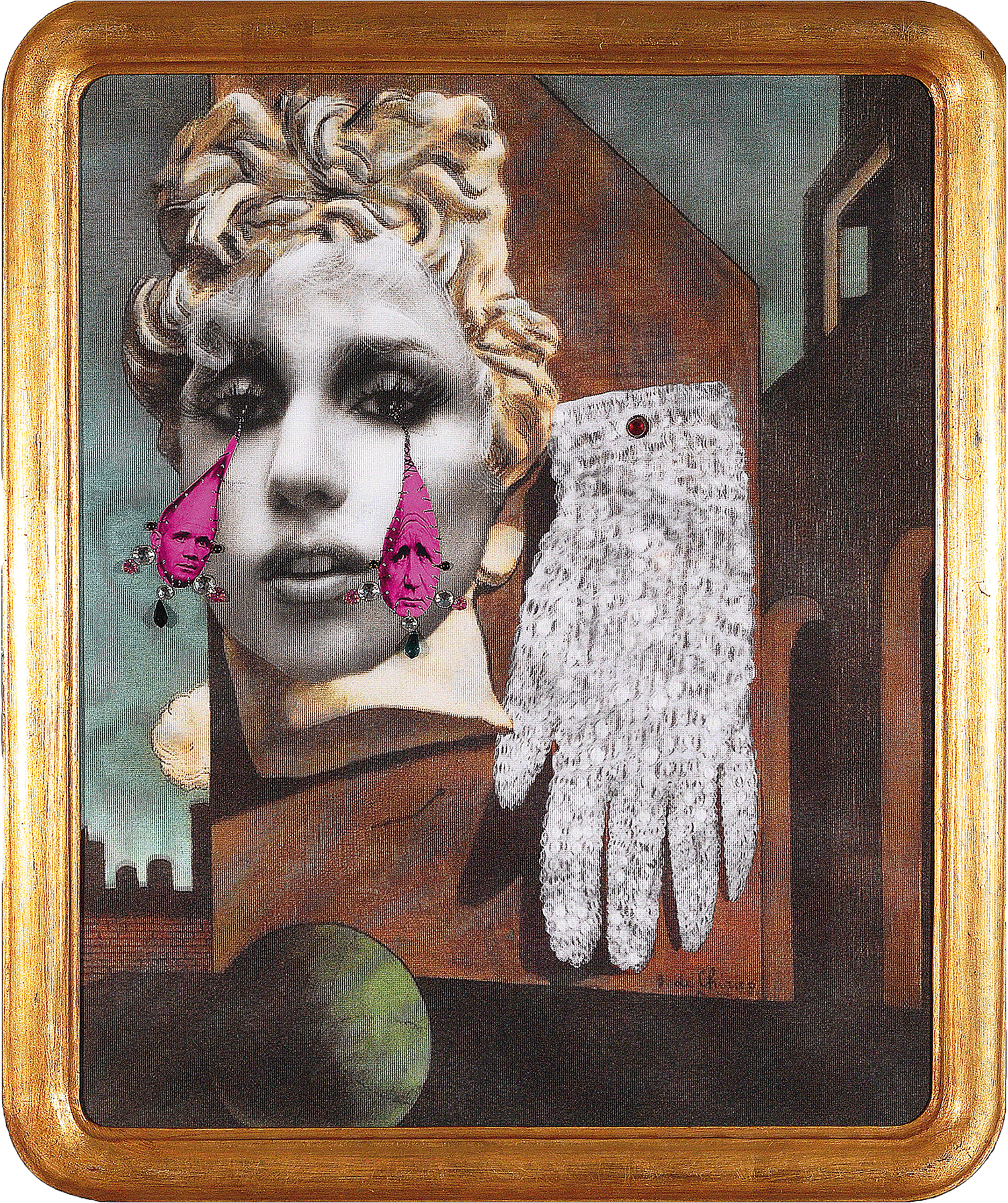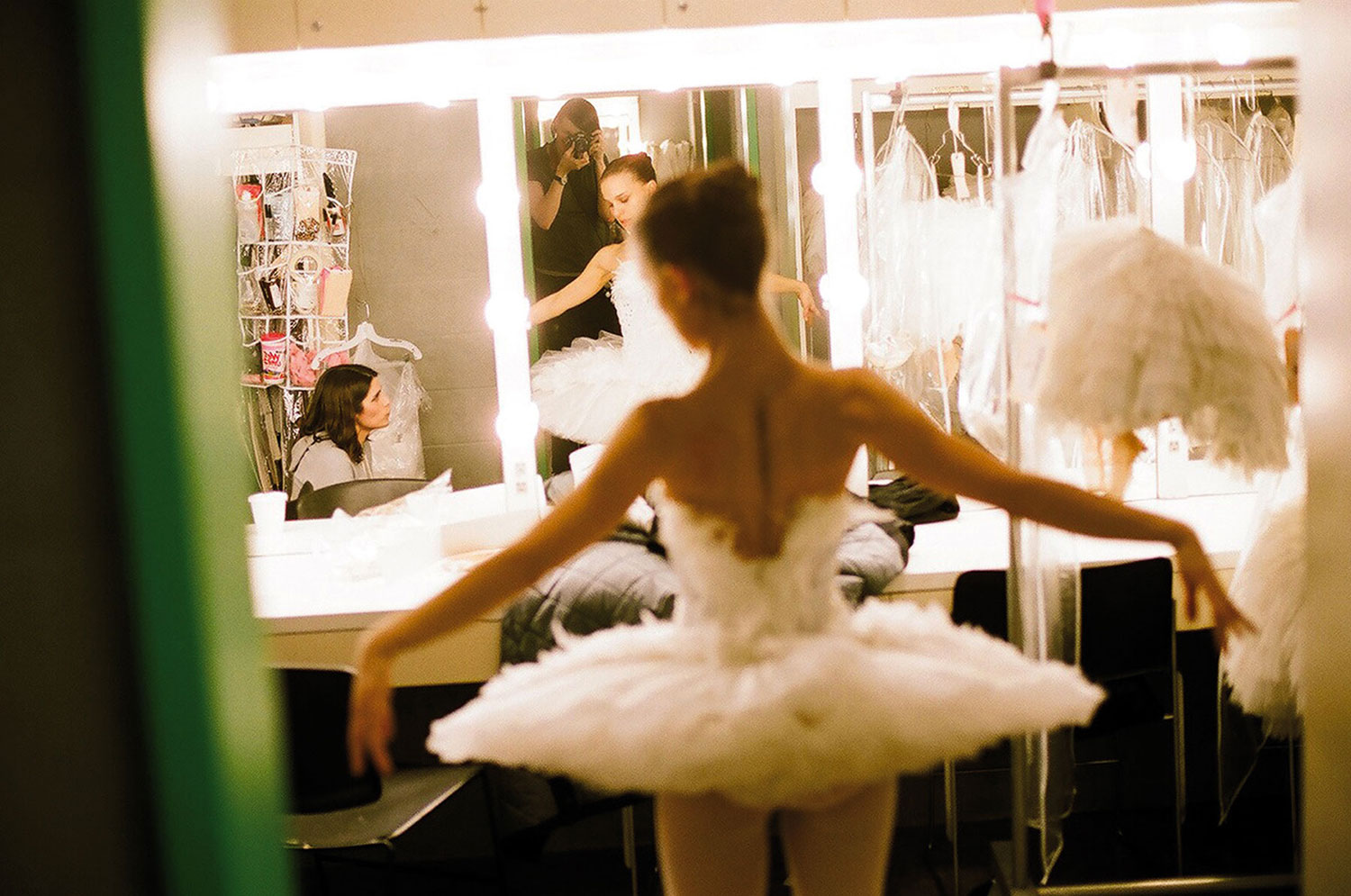
Working as a curator both with Francesco Vezzoli on his first international survey exhibition tour, and with James Franco on a collaboration with Gus Van Sant, contemporary practice in 2011 seems to me to once again embrace fictionalized realities and to realize complex fictions. While James Franco, as a movie actor, makes a guest stint in a major soap opera playing a visual artist, he also writes the storyboard of the show and uses L.A.’s Museum of Contemporary Art as the setting for his conceptual maneuver. In the same museum, Francesco Vezzoli staged The Shortest Musical You Will Never See Again with Lady Gaga and the Bolshoi Ballet. Franco mixes his public persona and his personal appearances into a potpourri of creative activities — ranging from singing with Kalup Linzy in drag to hosting the Oscars — without having obvious problems acclimating. Vezzoli portrays himself in a True Hollywood Story as the scandalous artist and public persona he would like to be — and more and more is becoming. This conversation occurred in New York before Vezzoli’s opening of a fake church that celebrates his mother, and during Franco’s break from his continuous marathon of attending numerous art schools.
—Klaus Biesenbach
Francesco Vezzoli: In the popular imagination, you play with a kind of short circuit by being James-Franco-the-artist, James-Franco-the-writer, James-Franco-the-actor. Not only do you do that, you also short-circuit the master of ceremonies at the most surreal ceremony in the world, the Oscars. I say, bravo.
James Franco: Since the night of the MOCA gala when I was getting ready to go on General Hospital, I have wanted to ask you, as an artist, how you can take ownership over a move like that? Going on a soap opera was already something that people commented on. That night you said, “I love it because you are working in a way that I also like to work, where you become a kind of virus in a certain sense.”
FV: Absolutely.
JF: I loved that. I loved the way that people’s responses made them look at General Hospital and entertainment in general in a different way. The way that I am a movie actor interrupted that world. I then took that and I tried to do more. To begin with, I put my own frame around it all when we turned it into an event that included MOCA. The important aspect about that show for me was the kind of conceptual frame that it provided. I think that different worlds were combining and commenting on each other in that piece. Both of these worlds came together and it resulted in a show that was aired on ABC — one slightly unlike every other episode because we were at MOCA. My attempt was to put a frame around the more pure act of just going on General Hospital. Me hosting the Oscars is something that might be unexpected — people expect Billy Crystal to do it. In some ways I like the blending of forms. You know, I don’t want to go on and ruin the Oscars. It is not about going on and pissing all over the Oscars.
FV: Of course not. You are a virus. You are not there to kill it. You are there to deal with the anticorps.
JF: You do that well in your work and that really interests me. Frankly, it is one of the things that I can do because of the position I found myself in. Chris Burden could do Through the Night Softly, where he is crawling through glass, and put that on television for eight seconds on a local station; and I can go on General Hospital for 20 episodes. Andy Warhol can go do one episode of The Love Boat. I can be on the Oscars. Being able to bridge those worlds is something that I find myself in a unique position to do. It is not about criticizing but, rather, merging different worlds so that you view each side differently.

FV: For me, your Oscars is an artwork even before it begins. To draw a comparison, what Ricky Gervais did at the [Golden] Globes — which I am sure you looked at?
JF: Yes.
FV: He attempted to satirize; but really he wanted to kill the Globes. Sometimes it was even heavy. Yet, clearly the world feels that the rituals of entertainment need some refreshing. Ricky Gervais may not be the way I would go — that is not the way a ‘virus’ would. He came into the room with a bazooka and shot. I imagine you a little bit like Allen Ginsberg arriving in the room with a gun that will shoot flowers. You prove that the world needs a reinvention of the concept of a star. It can no longer be that there is a great actor who is completely oblivious of other forms of culture. We were hoping for something like that, you know. We can no longer stand movie stars going to the wrong galleries and hanging out with the wrong…
JF: It is fitting that we are talking because you also bridge into other worlds. As an artist you have dealt with film and you have worked with some of my favorite actors, like Benicio Del Toro. With General Hospital it was blending in a different way; people did not expect to see me there because they consider that a lower form of entertainment, as though I am kind of slumming there. Now, with the Oscars, people do not expect me there because they expect an elder statesman kind of actor to be there, or an out-and-out comedian. My hope is that people will be a bit taken aback. In a sense, it is a performance that makes people question just what entertainment is, how we reward entertainment and our role in it. The thing is that I feel like at that point you are dependent on a critic to frame and contextualize it as an art piece or as an art act. Do you think that that is necessary? Do you know what I mean?
FV: I perfectly understand. With the Oscars though I am just wondering how you will do it while not playing a character — people simply expect you to be yourself.
JF: On General Hospital, the first time I let them control everything. Then I brought the artist Kalup Linzy on, whose work is often very influenced by soap operas. So I thought, let’s reverse it and put him in a real soap opera. The result will be another weird kind of mirroring, repositioning or reframing, where a real artist who is influenced by soap operas is on a soap opera. I started influencing the show more. I also had them bring my real mother on to play my mother on the show. It was really weird for me to have my mother on. You know, she is a children’s book author. But she started taking acting classes in California, ostensibly to help her writing, as well as to get into the heads of her characters better. But, she fell in love with acting. They had given her a character that was supposed to be an ex-hippie, still into astrology and a bit loopy. It is kind of like my mom. I mean, she is not into astrology but she is an ex-hippie. She went to school at Stanford in the ’60s. Still she was playing it really strange. Even though I was playing a character that was not really me (he was a murderer), it was kind of me. So I expected my mother to relate to me like she usually does. Instead, she was doing this bizarre character. It was like my mother, but not my mother. That was very, very strange.
FV: After Lady Gaga, I had to think about where to go in terms of relating to stardom. I felt that instead of going forward, I had to go all the way backwards. I had to go to my mother, to the woman who inspired in me all my love for other women. So, that was my thing, which is not very original, but that is where I took it. The Oscars is a very deep challenge for you. Like when your career gives you an unexpected opportunity. It is like me doing the show at Gagosian while I satirize commerce, entertainment and glamour. Like Oscar Wilde said: “There are only two tragedies in life: one is not getting what one wants, and the other is getting it.” As a virus, when people start to respect what you are doing, then you are given new chances. The power and impact of this environment gets bigger and, in this sense, what you do that night is relevant. I see you as a kind of conceptual artist. For me, to experiment is your success. Anyone of these elective challenges could have ended in so many different ways. Like all art, some experiments are successful, some are less so.
JF: I was at Sundance this weekend, and I had a work in the New Frontiers category, where I appropriated the sitcom Three’s Company, the American show that was on in the ’80s. I guess it was the number-one show, at least for a short period. People back then watched TV in an older fashion — people were not watching it on their computer alone. You would sit in your living room. On the sitcom, they were sitting in their living room watching other people in their living room. I thought, let’s pull the audience through the screen and they can come into this living room. There was a mirroring going on, and we will just pull them through the mirror. So, we rebuilt the set. The piece is called Three’s Company: The Drama. So we projected six episodes, the whole first season, shot with four cameras, as if it was a documentary. Each camera would follow a different character. I was going between them. Our footage is much rougher — the characters are now split, fragmented. Then, we project images from each camera on one of the four walls. When you walk into the room it is like you walk into their worlds. It is not as if you are watching the show. It is as if you are in the middle of it. Then I took out the audio track and I recorded my own audio track. I re-dubbed it with their lines, added a thing or two here and there, but I tried to read it as a drama, which was very hard to do because it is a sitcom. It was just set-ups and jokes. We tried to play against that, and stay aware that we were performers re-enacting. As for how we shot it, I had one very good DP, and we hired two other operators who were not experienced. We had them shoot and frame in very odd ways. Our costumes were not very good. We had very horrible wigs and stuff. The premise of the American show was that Jack Tripper had to pretend he was gay in order to live in an apartment with two women. It was done in the ’70s and ’80s, so a lot of the humor is very un-PC.

FV: Can I just make a quick detour? Ten years ago I did a project called Let’s Play Dynasty (2000), where I played Steven Carrington, the gay son, and Helmut Berger — the boyfriend of Luchino Visconti, who at the end of his career appeared in two seasons of the show Dynasty — plays Alexis Carrington.
JF: Did you use the scripts, or did you create your own scripts?
FV: No. We used an original. All I am pointing to is that you were doing this. I was doing that. It is literally the same thing. You did it on something that is a staple of reference for American culture. I did it for something that was my idealized world of American glamour. You and I focus on the recreation of some moments that probably relate to our childhood memories on some level… At the end of my piece, Helmut Berger and I kiss. But it is not a gay kiss. Since he is playing my mother, it is an Oedipal kiss.
JF: Wow…
FV: I thought you’d like that.
JF: The next key step in this is where you release things. Presentation has become so important. I know the history of actors trying to branch out. Actors trying to publish a book is viewed in a certain way. I am always thinking about it. How do I present this work in a way that is conceptual? I am not trying to deliver something very polished. I am not trying to release a commercial film like The Social Network (2010) or something like that. How do you get people to see the conceptual side of it? For me, the Sundance Film Festival was perfect because you have this silly sitcom at our most prestigious film festival. Suddenly people are woken-up, jarred out of their expectations. Whether people know it or not, they are used to a certain kind of film being at Sundance.
FV: Believe me, I know that kind of picture.
JF: Yeah. In a way that celebrates without completely bashing Three’s Company. It is not making fun of the festival either.
FV: It is another ‘virus.’ And, it is endearing that someone in your position worries so much about presentation. Sometimes you realize that you do not find attention to presentation in the art world. You can present something at Art|Basel, but there is so much going on that people there might have a smaller attention span than people in Hollywood — because Art|Basel is the Hollywood of art. But, in general, one must never allow fear of criticism or fear of presentation to stop you from changing or realizing a new vision. All the greatest people that I always admire broke boundaries. Vittorio De Sica started with neo-realism, then he did a lot of sloppy comedies, then he did kind of campy melodramatic movies. Nonetheless, he is a great genius. So, my answer to your question about presentation is: do not let this fear ever stop you from doing another outlandish project.
JF: I have felt a great burden, spending a few years now taking all these pursuits very seriously. When they see my work, there is going to be a screen that a lot of people are not going to be able to avoid looking through. They will only see it under the guise of an actor producing this. I suppose, because I feel that is inevitable, I try to embrace that by adding a bit of humor to everything I do. So that it takes some of the pressure off. Being too serious would mean people might write it off. By being a little bit humorous it allows me to go in more directions.
FV: No, of course, people feel really intimidated after a certain point because you are excelling in so many fields. You are not like Sylvester Stallone making bad movies and then going home and making bad paintings. You are nominated for an Oscar and you make an experimental project with MOCA. It does not get much better. Pretty soon you will do one with MoMA. I am dying to see the Oscars. I am dying to see whatever comes next from your crazy twist of the viral fantasy.
JF: Well, come — I have a show with Gagosian in LA.
FV: We stay in touch.
JF: Ok. It’s a deal…

